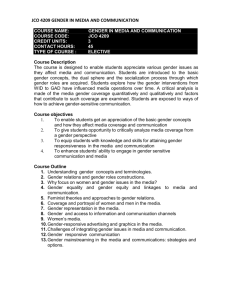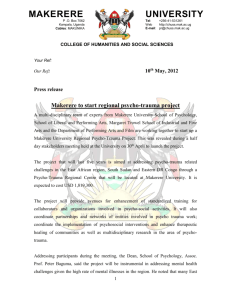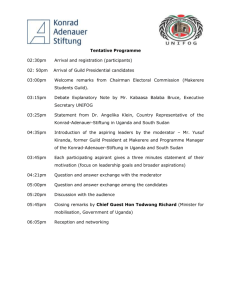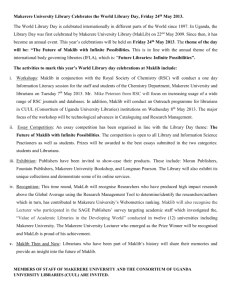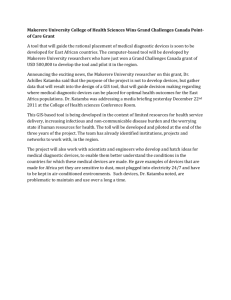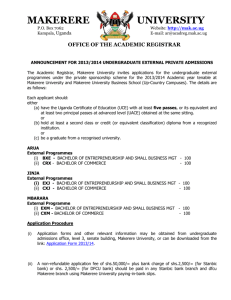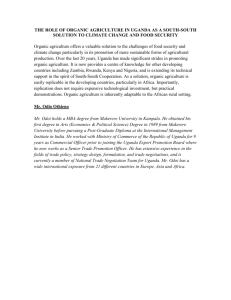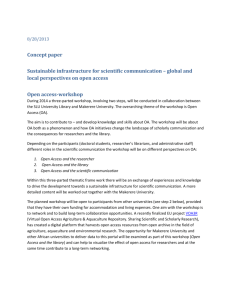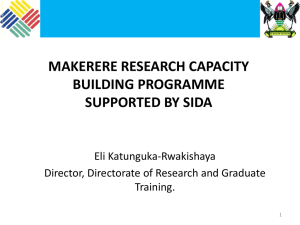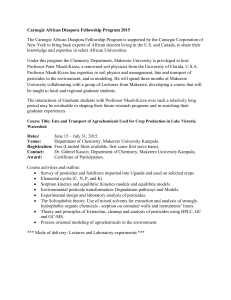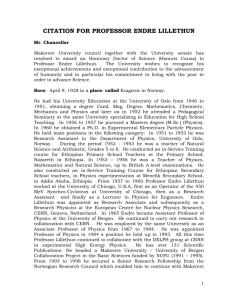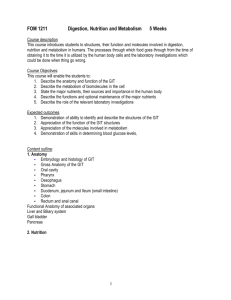Makerere University
advertisement
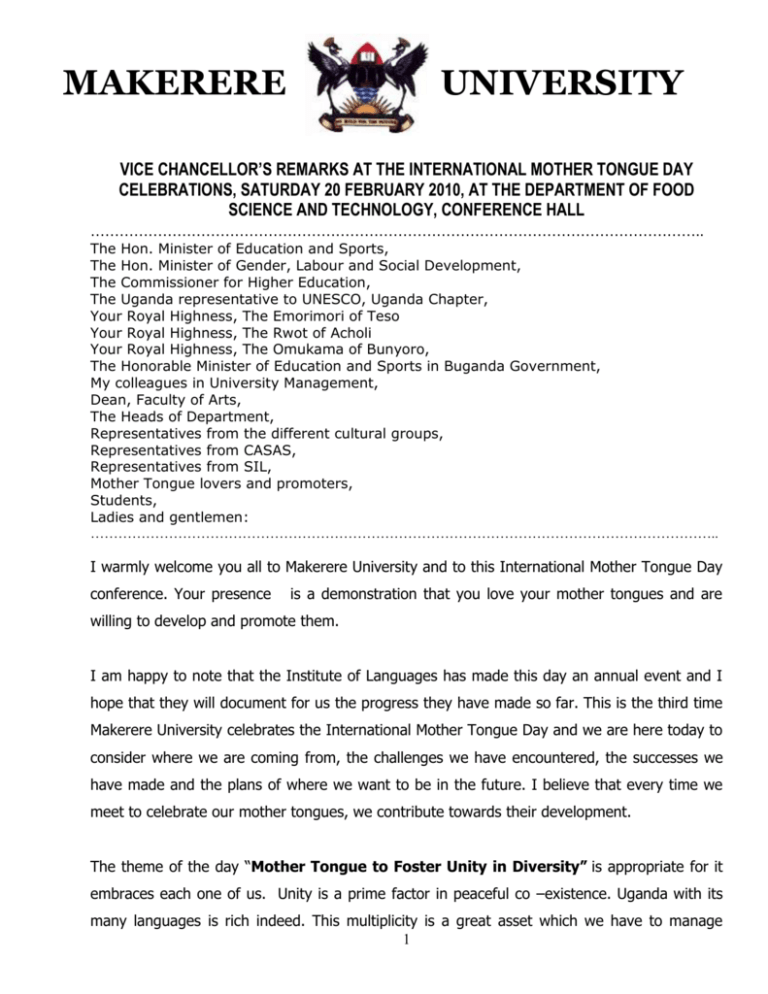
MAKERERE UNIVERSITY VICE CHANCELLOR’S REMARKS AT THE INTERNATIONAL MOTHER TONGUE DAY CELEBRATIONS, SATURDAY 20 FEBRUARY 2010, AT THE DEPARTMENT OF FOOD SCIENCE AND TECHNOLOGY, CONFERENCE HALL ……………………………………………………………………………………………………………….. The Hon. Minister of Education and Sports, The Hon. Minister of Gender, Labour and Social Development, The Commissioner for Higher Education, The Uganda representative to UNESCO, Uganda Chapter, Your Royal Highness, The Emorimori of Teso Your Royal Highness, The Rwot of Acholi Your Royal Highness, The Omukama of Bunyoro, The Honorable Minister of Education and Sports in Buganda Government, My colleagues in University Management, Dean, Faculty of Arts, The Heads of Department, Representatives from the different cultural groups, Representatives from CASAS, Representatives from SIL, Mother Tongue lovers and promoters, Students, Ladies and gentlemen: ……………………………………………………………………………………………………………………….. I warmly welcome you all to Makerere University and to this International Mother Tongue Day conference. Your presence is a demonstration that you love your mother tongues and are willing to develop and promote them. I am happy to note that the Institute of Languages has made this day an annual event and I hope that they will document for us the progress they have made so far. This is the third time Makerere University celebrates the International Mother Tongue Day and we are here today to consider where we are coming from, the challenges we have encountered, the successes we have made and the plans of where we want to be in the future. I believe that every time we meet to celebrate our mother tongues, we contribute towards their development. The theme of the day “Mother Tongue to Foster Unity in Diversity” is appropriate for it embraces each one of us. Unity is a prime factor in peaceful co –existence. Uganda with its many languages is rich indeed. This multiplicity is a great asset which we have to manage 1 well, protect, nurture, promote and rejoice about. Our diverse cultures, shared destiny, shared challenges should help bring us together rather than divide us. Languages are not only a means of communication, but they are also stores of cultural wisdom, stores of our history, indicators of our human development and civilization. Celebrating mother tongue day should not only focus on speaking and writing in our mother tongues, but should also include the celebration of the breakthroughs in the researches undertaken, the new discoveries of how best to study our languages, the new innovations in areas such as the development of orthographies, new theories in the description of our languages and so on. It should also include the celebration of the success in sensitizing the general populace in their attitudes towards their languages and the ability to sustain that interest. Makerere University is a public university which is accountable to the citizenry it exists to serve. This therefore means that each Faculty/Institute/School must focus on its mandate critically aligning it to the trends in higher education and the global environment. This celebration therefore presents an opportunity for the Institute of Language, in particular and Makerere University, in general to justify their existence. I commend the Institute of Languages for taking on a number of tasks to promote languages. You are engaged in teaching a number of our local languages to foreigners who wish to do research here. You offer courses in Kiswahili as a service course, as well as French, German and communication skills. We thank you for that spirit of patriotism and urge you to continue. Your research in dictionary compilation in a number of Ugandan languages is a good move. I also know that you will be launching a number of book publications in our local language. However, the Institute of Languages must devise ways of disseminating the knowledge in these publications to benefit the target audiences. The Makerere University Community and stakeholders would benefit from the rich knowledge in these publications if they are uploaded online. It is through dissemination of knowledge and access to this knowledge that the wider public understands and appreciates our role in national development. For the wisdom in these 2 carefully thought and researched publications always has the power to influence their attitudes, behaviour and public debate. In addition to the research being undertaken, I also wish to propose that the Institute expands on its research areas to include such important areas as: the current language situation in Uganda, the fate of dying languages, the official languages, the national language question and others. We also urge the Institute to innovate to ensure that language is not studied just for its own sake. There should be a way of ensuring that what students learn is applicable in real life situations. Our languages and cultures can thrive best when supported by Government. I appeal to the Institute of Languages to initiate and strengthen strategic partnerships with the Government, the Ministry of Education and Sports, and international bodies. I challenge the staff and researchers in the Institute of Languages to identify what they want the Government through its line ministry to do for Makerere University in the promotion of languages. With such strategic approaches, Makerere University and Government will be in a better position to prioritise the critical issues in the promotion of mother tongues. I look forward to this for I believe and know that Makerere University and the Government have the power and potential to determine the destiny of mother tongues. It is now my humble pleasure to invite the Guest of Honour, the Honourable Minister of Education to speak to you. We build for the future. Sincerely: Professor Venansius Baryamureeba, Ag. Vice-chancellor, MAK 3
